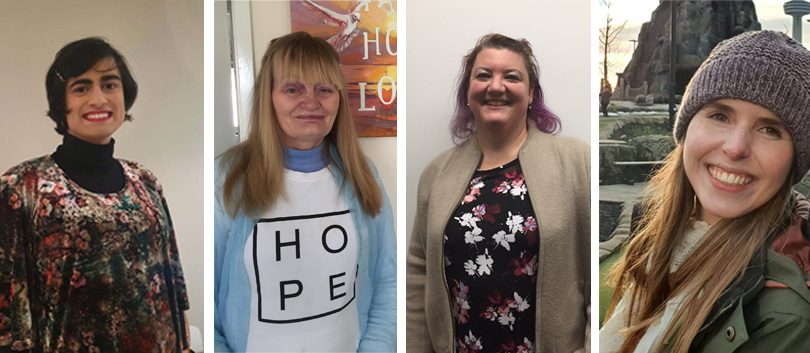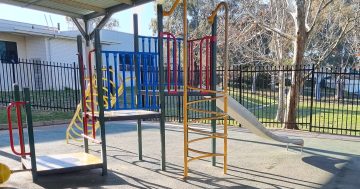
Meet your Mental Health Month ACT community ambassadors (from left) Lana Gee, Rose Beard, Bianca Rosetti and Rose Clifford. Photos: Supplied.
October is Mental Health Month, and there’s never been a year in which monitoring one’s mental health has been of such importance.
The impact of extended COVID-19 lockdowns is acknowledged as being detrimental to a community’s mental health, and last week the ACT Government boosted funding to the community mental health sector to support people who need it.
Mental Health Month ACT coordinator Alison Hall says this year is all about daily checklists of activities that are good for your wellbeing as part of a ‘mental health trail’.
“When we pivoted from what was intended to be our public expo, we were looking for a way to engage the community in a really strong way,” she says. “That’s where the mental health trail element came from.”
An online booklet and resource will be available, as well as a soon-to-be-released phone app to help keep people accountable.
“It’s easy to see a couple of pointers or tasks online, but we think it’s more beneficial if people can physically tick off these wellbeing tasks,” says Alison.
“It’s all about trying and learning new things, and wellbeing practices that people can continue to use well into the future.”
The theme makes a lot of sense given the Mental Health Community Coalition ACT (MHCC), which organises Mental Health Month ACT, works in the early intervention and prevention space.
Alison suggests that the first – and perhaps best – step towards better mental health is gaining an understanding of the little activities that can be beneficial to one’s wellbeing.
This can be anything from going out into nature; doing mindful or other creative activities; getting moving; and staying connected. Each of the four weeks of Mental Health Month ACT in October is themed with these categories.
All the activities have also been re-evaluated and carefully considered by the Mental Health Month ACT team so they can be completed even if you find yourself in lockdown or the dreaded quarantine for the month.
“The movement activities won’t tell you to go on a big long walk out of your area or anything like that,” laughs Alison.
Instead, there’s a focus on little activities and small practices such as gratitude.
“We need to work out ways to focus on the little things in our lives, even when we are currently feeling a bit uncertain, overwhelmed and anxious,” says Alison.
Instead of providing people with a broad goal, Alison notes they’ve really tried to make it simple by providing specific, detailed instructions.
“While we allow for a bit of leeway for personal preferences, we also want you to feel a sense of achievement, which can be very necessary when every day feels the same,” she says.
“It breaks up the day and gives you something different to do.”
Likewise, many of the activities focus on creating social and community connections, even if they have to be forged virtually or in a socially distanced, outdoor setting.
“We do want it to be a community event, even if you have to do the sharing via social media,” says Alison.
Well-known figures who have lived experience with mental health will also be sharing some insights into their personal mental health journeys throughout October through social media, radio and online platforms.
“It’s all about breaking through that stigma and reminding people that mental health struggles can affect anyone and everyone,” says Alison.
You may also see a few familiar faces involved during the month, including Mental Health Month supporters Mirko Milic from Canberra Toyota and Kulture Break’s Francis Owusu, who will also be leading the Unstoppable virtual dance challenge throughout the month.
Alison’s last reminder to people as Mental Health Month commences is there is help out there.
“If you need to talk to someone, there are plenty of organisations out there ready and willing to help,” she says.
Check the Mental Health Month website for more details about how to follow the mental health trail, including how to download the app.
If you or anyone you know needs mental health support, contact Lifeline on 13 11 14 for 24-hour crisis support. In an emergency, call triple zero (000).
Dedicated mental health and wellbeing resources are also available through ACT Health’s COVID-19 website.
Original Article published by Lottie Twyford on The RiotACT.









